special education teacher interview questions pdf

Preparing for a special education teacher interview requires understanding key questions and strategies. This guide provides insights into common queries, preparation tips, and expectations to help candidates succeed.
Overview of the Importance of Special Education Teacher Interviews
Special education teacher interviews are crucial for assessing a candidate’s ability to support students with diverse needs. These interviews evaluate teaching strategies, behavioral management, and collaboration skills. Employers seek candidates who understand legal frameworks like IEPs and FBAs. Preparation involves researching school policies and practicing answers to common questions. Demonstrating flexibility, empathy, and a student-centered approach is essential. The interview also highlights the candidate’s ability to work in inclusive environments and adapt to individual student requirements, ensuring a supportive educational experience.
Common Special Education Teacher Interview Questions
Interviews for special education teachers often include questions about classroom strategies, behavioral management, and legal knowledge like IEPs. Candidates are also asked about collaboration and adaptability.
Behavioral and Scenario-Based Questions

Behavioral and scenario-based questions assess a candidate’s problem-solving skills and adaptability. Examples include handling challenging behaviors, supporting students with unique needs, or collaborating with parents. Interviewers seek specific examples from past experiences, focusing on how candidates managed situations, promoted inclusion, and ensured student progress. These questions evaluate a teacher’s ability to think critically and respond effectively in real-world scenarios, demonstrating their readiness to support diverse learners effectively.
Questions About Classroom Management and Strategies
Classroom management and strategy questions focus on a teacher’s ability to create a structured, supportive environment. Interviewers often ask about techniques for engaging students, managing behaviors, and adapting strategies. Candidates should provide examples of successful methods, such as positive reinforcement or differentiated instruction. The goal is to assess how effectively they can maintain order, promote learning, and cater to diverse needs, ensuring all students thrive academically and behaviorally.

Understanding the Role of a Special Education Teacher
A special education teacher develops and implements personalized plans like IEPs and FBAs, collaborating with educators and parents to support students with diverse learning needs effectively.
Key Responsibilities and Expectations
A special education teacher is responsible for creating personalized learning plans, such as IEPs and FBAs, to address individual student needs. They assess progress, implement behavioral strategies, and collaborate with general education teachers, therapists, and parents. Effective communication and adaptability are essential, as is staying updated on legal frameworks like FAPE and LRE. The role demands patience, creativity, and a commitment to fostering inclusive learning environments that promote academic and social growth for all students.
Essential Qualities and Skills for Success
Success as a special education teacher requires empathy, patience, and strong communication skills. The ability to adapt to individual student needs, collaborate with teams, and manage challenging behaviors is crucial. Proficiency in creating and implementing IEPs, FBAs, and BIPs is essential. Additionally, creativity in developing engaging lessons and a commitment to ongoing professional development are vital for fostering an inclusive and supportive learning environment.
Preparing for a Special Education Teacher Interview
Research the school, practice answering common questions, and review legal frameworks like IEPs and FBAs. Be ready to discuss past experiences and teaching strategies effectively.
Researching the School and Program
Understanding the school’s mission, special education philosophy, and available resources is crucial. Review the program’s structure, staff experience, and parent involvement. Familiarize yourself with the student population’s needs and how they align with your expertise. This research helps tailor your responses, showing your commitment to their specific environment and enhancing your credibility as a candidate.
Practicing Answers to Common Questions
Preparation is key to acing a special education teacher interview. Review common questions and practice concise, confident responses. Use the STAR method to structure answers, focusing on specific situations, actions, and outcomes. Highlight your experience with IEPs, classroom strategies, and student support. Mock interviews or recording your responses can help refine delivery. This practice ensures you articulate your skills and experiences clearly, demonstrating your readiness for the role.
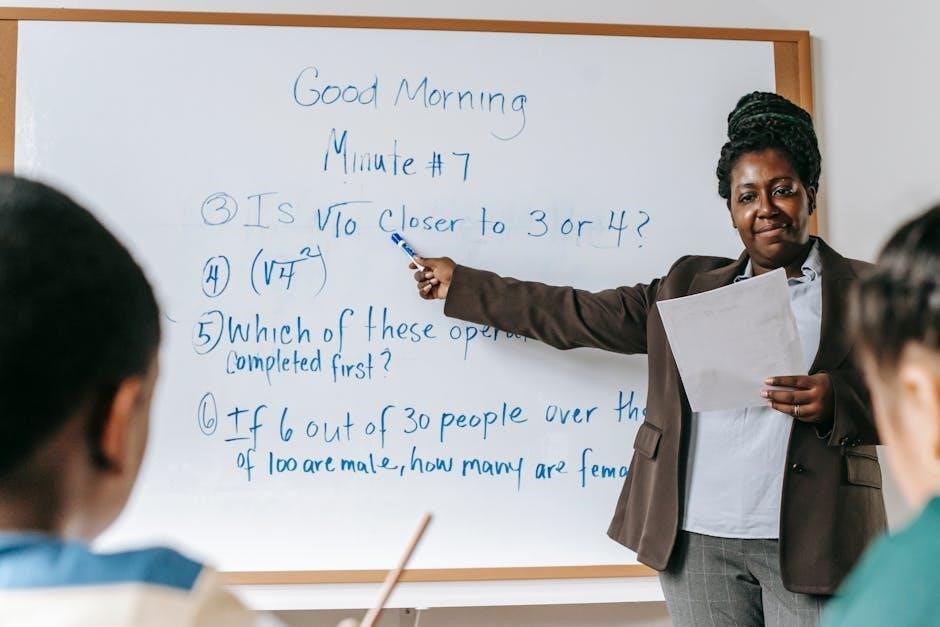
Behavioral Interview Questions for Special Education Teachers
Behavioral questions assess real-life teaching experiences, focusing on managing challenging behaviors and supporting students with special needs. Prepare examples using the STAR method to highlight your problem-solving and adaptability.
Examples of Questions About Past Experiences
Common questions include, “Describe a time you supported a student with severe behavioral challenges,” or “How did you adapt your teaching strategies for a student with unique needs?” Interviewers seek specific examples showcasing your problem-solving, adaptability, and commitment to student success. Prepare stories highlighting collaboration with parents, creative lesson planning, and successful behavioral interventions. Use the STAR method to structure your responses, emphasizing your role, actions, and positive outcomes.
How to Showcase Collaboration and Flexibility
Highlighting teamwork and communication skills is crucial. Discuss how you’ve collaborated with colleagues, parents, and therapists to support students. Share examples of adapting lesson plans or strategies based on student needs or feedback. Emphasize your willingness to listen, share ideas, and remain open to new approaches in co-teaching environments. Showcase flexibility by describing how you’ve adjusted your methods to meet diverse learning styles or unexpected challenges in the classroom.
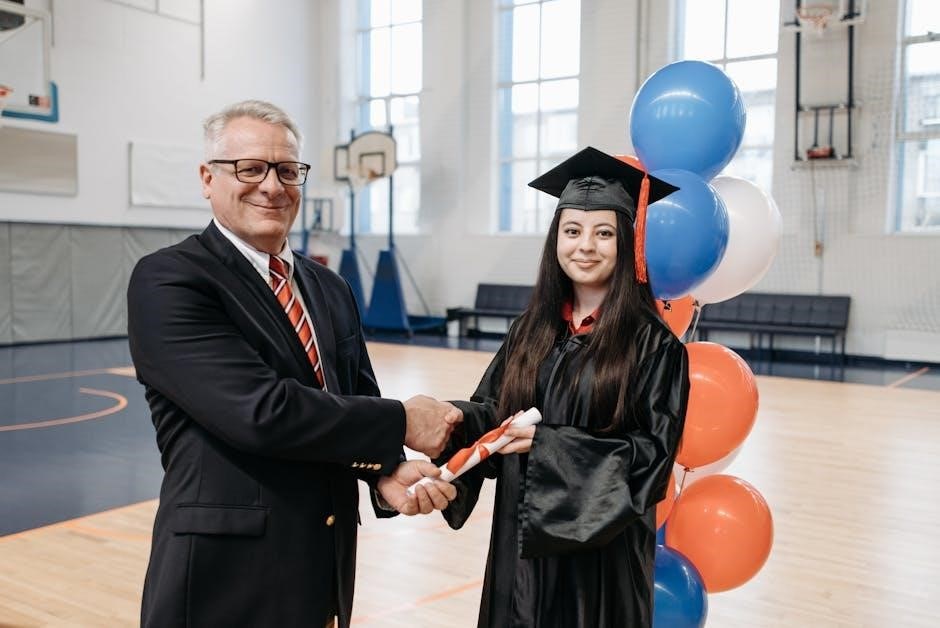
Technical Questions About Special Education
Understanding legal frameworks like IDEA and Section 504 is essential. Be prepared to discuss IEPs, FBAs, and BIPs, demonstrating your knowledge of special education laws and procedures.
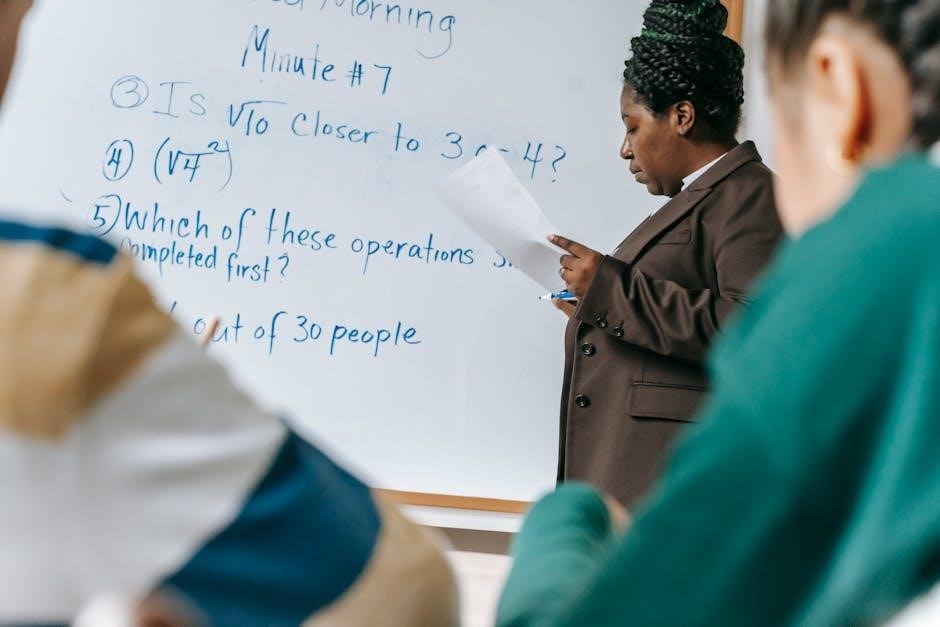
Understanding IEPs, FBAs, and BIPs
IEPs (Individualized Education Programs) outline tailored goals and services for students with special needs. FBAs (Functional Behavioral Assessments) identify the root causes of problem behaviors, while BIPs (Behavior Intervention Plans) provide strategies to address them. Understanding these documents is critical for special education teachers, as they ensure legal compliance and guide personalized support. Demonstrating knowledge of how to develop, implement, and monitor these plans showcases your expertise in meeting students’ unique requirements effectively.
Legal Frameworks and Educational Laws
Special education is governed by laws like IDEA 2004, Section 504, and ADA, ensuring students with disabilities receive appropriate services. Understanding these frameworks is crucial for compliance and ethical practice. Interviewers may ask about FAPE (Free Appropriate Public Education) and LRE (Least Restrictive Environment) to assess your knowledge of legal rights and educational entitlements. Demonstrating familiarity with these laws highlights your commitment to providing equitable and lawful special education services.
Questions to Ask the Interviewer
Asking insightful questions demonstrates engagement and preparedness. Inquire about the school’s approach to special education, available resources, and opportunities for professional growth to show your interest and initiative.
Understanding the School’s Approach to Special Education
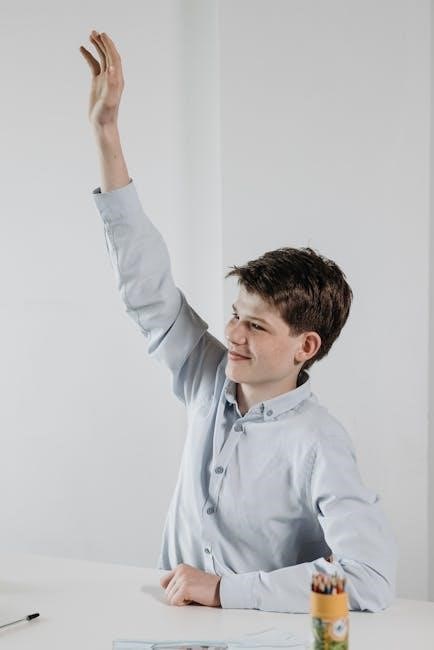
Understanding the school’s approach to special education is crucial. Ask about their methods for developing IEPs, supporting diverse learning needs, and fostering inclusivity. Inquire about how they assess student progress, implement behavioral interventions, and ensure collaboration between teachers, parents, and administrators. This insight helps align your teaching philosophy with their practices and demonstrates your commitment to student success and teamwork.
Opportunities for Professional Development
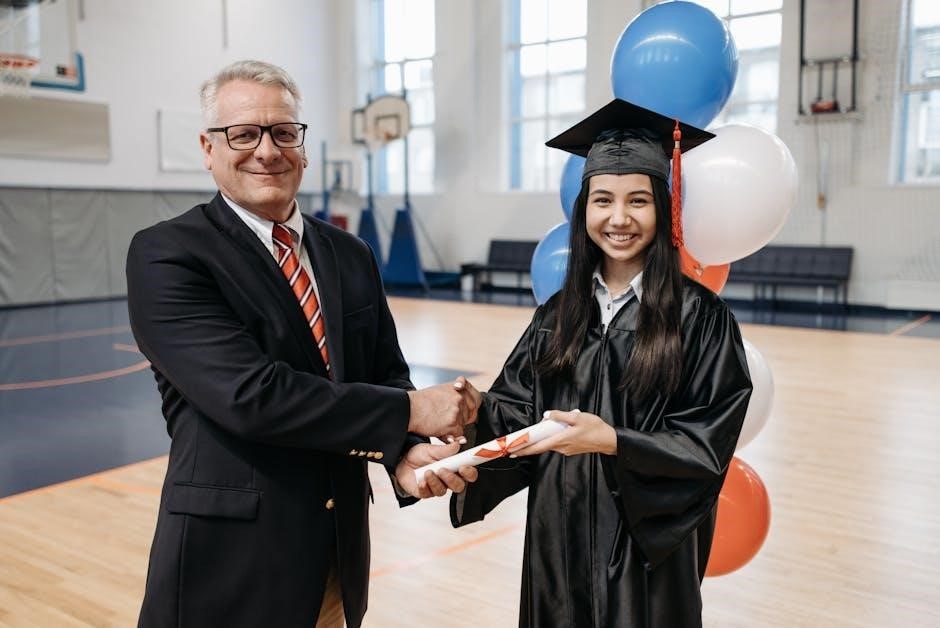
Ask about professional development opportunities to grow as a special education teacher. Inquire about workshops, mentorship programs, and training on IEPs, FBAs, and inclusive practices. Understanding the school’s commitment to ongoing learning reflects their investment in teacher excellence and student success. This also highlights their support for staying updated on best practices, legal requirements, and innovative teaching strategies.

Current Trends in Special Education Interviews
Current trends emphasize technology integration, diversity, equity, and inclusion. Interviews now focus on adaptive teaching strategies, student-centered approaches, and innovative methods to support diverse learning needs effectively.
The Role of Technology in Special Education
Technology plays a pivotal role in special education, enhancing learning experiences for students with diverse needs. Tools like educational apps, interactive software, and communication devices enable personalized instruction. Assistive technologies such as speech-to-text and text-to-speech tools support students with disabilities. Additionally, technology fosters engagement through multimedia resources and real-time feedback. Interviews often highlight how teachers integrate these tools to create inclusive, adaptive learning environments, ensuring all students can thrive academically and socially.
Diversity, Equity, and Inclusion in the Classroom
Diversity, equity, and inclusion are cornerstone principles in special education, ensuring all students receive equitable learning opportunities. Teachers must create culturally responsive environments that value students’ backgrounds and abilities. This involves implementing inclusive strategies, addressing biases, and fostering empathy. During interviews, candidates are often asked to share approaches for promoting diversity and equity, highlighting their commitment to creating a welcoming classroom where every student feels valued and supported.
Confidence, preparation, and professionalism are key to acing a special education teacher interview. Emphasize your understanding of IEPs, classroom management strategies, and legal frameworks. Highlight your passion for supporting diverse learners and commitment to fostering an inclusive environment. Follow up with a thank-you note to express gratitude and reiterate your interest in the role.
Final Preparation and Confidence Building
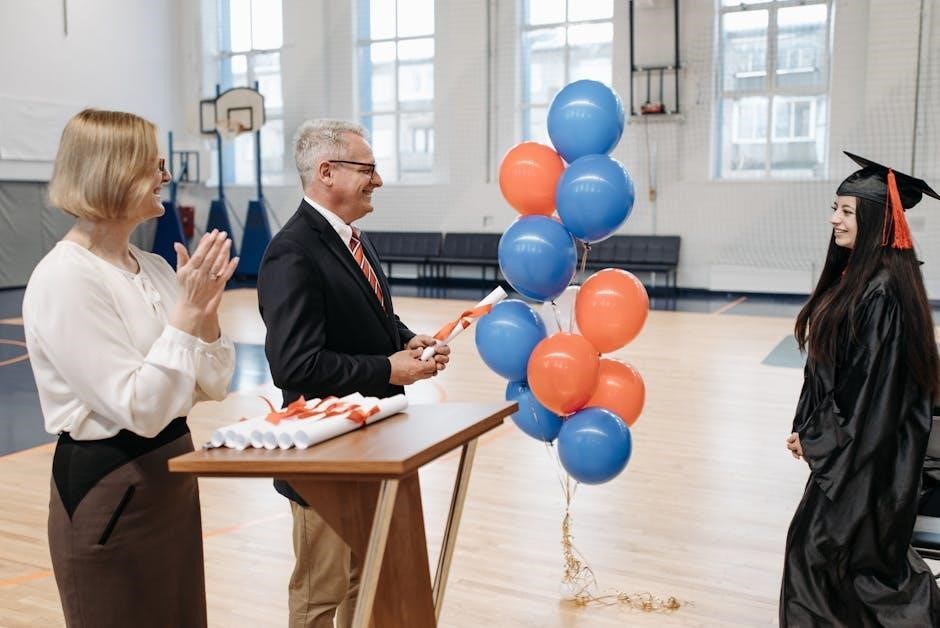
Thoroughly review potential questions and practice concise, impactful answers. Engage in mock interviews to refine your delivery and build confidence. Research the school’s special education programs and align your experience with their goals. Organize materials like lesson plans or IEP examples to showcase your expertise. Focus on highlighting your ability to support diverse learners and collaborate with teams. Mentally rehearse scenarios to articulate your problem-solving skills clearly and confidently.
Following Up After the Interview
Sending a thank-you note within 24 hours demonstrates professionalism and gratitude. Reiterate your enthusiasm for the role and align your qualifications with the school’s needs. Mention specific discussions or insights from the interview to show genuine interest. If you haven’t heard back, a polite follow-up email after a week can remind them of your candidacy. This step reinforces your commitment and leaves a positive impression.





